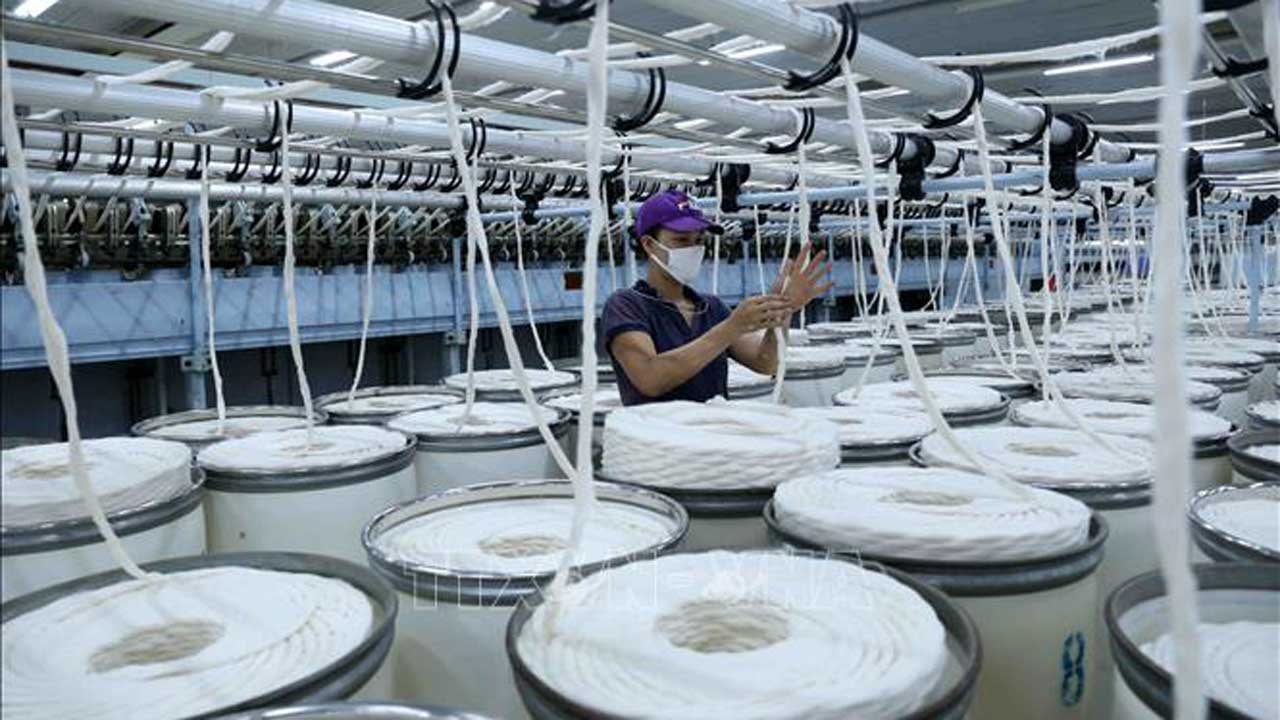HCMC – The World Bank (WB) has forecast that Vietnam’s economic recovery is likely to accelerate this year as its gross domestic product (GDP) is expected to rise 5.5%.
Dorsati Madani, a senior economist of WB in Vietnam, said the forecast was made based on the assumption that the Covid-19 pandemic will be brought under control and the local economy will recover strongly. Its inflation this year was projected to hit 3.5%-3.6%, higher than the figure in 2021, the local media reported.
A report issued by WB at a press briefing on January 13 showed that Vietnam’s service sector would gradually recover as consumers’ and investors’ confidence is restored, while the manufacturing sector benefits from a steady demand from the United States, the European Union and China.
The fiscal deficit and debt are expected to remain sustainable, with the debt-to-GDP ratio projected at 58.8%, well below the statutory limit.
The outlook, however, is subject to serious downside risks, particularly the unknown course of the pandemic. Outbreaks of new variants may prompt renewed social distancing measures, dampening economic activity.
Weaker-than-expected domestic demand in Vietnam could weigh on the recovery. In addition, many trading partners are facing a dwindling fiscal and monetary space, potentially restricting their ability to further support their economies if the crisis persists, which could slow the global recovery and weaken demand for Vietnamese exports.
According to WB, careful policy responses could mitigate these risks. Fiscal policies, including a temporary reduction of VAT and more spending on health and education, could support aggregate domestic demand.
Greening the trade sector should be a priority. Trade, while an important driver of Vietnam’s economic growth over the past two decades, is carbon-intensive —accounting for one-third of the country’s total greenhouse gas emissions — and polluting.
While Vietnam has started to decarbonize activity associated with trade, more needs to be done to respond to mounting pressures from main destination markets, customers and multinational companies for greener products and services.
Carolyn Turk, WB country director for Vietnam, said, “Trade will be a key component of Vietnam’s climate actions in the years to come. Promoting greener trade will not only help Vietnam follow through on its pledge to reach net zero-emission in 2050 but will also help it maintain its competitive edge in international markets and ensure trade remains a critical income and job generator.”
Vietnam should act on three fronts: facilitating the trade of green goods and services, incentivizing green foreign direct investment and developing more resilient and carbon-free industrial zones.
On January 11, the National Assembly allowed an increase in the State budget overspending by 1%-1.2% of the country’s GDP this year and next to mobilize capital for the largest ever relief package worth over VND320 trillion for the country’s economic recovery and development.
Jacques Morisset, WB lead economist and program leader for Vietnam, said this was a positive move as the Vietnamese Government had taken the initiative in issuing financial policies to support the post-pandemic economic recovery. The relief package would help Vietnam emerge as a high-income country in the 2045-2050 period.
The Government has simplified some investment procedures and striven to remove bottlenecks in public investment, Morisset added.
According to WB country director for Vietnam Turk, Vietnam should work out principles on public investment for the future to improve its effectiveness.
It should simplify procedures and processes but must have protection measures, ensure transparency in bidding and cushion the impacts of potential investment projects on the environment, Turk added.
She expected the decentralization would accelerate some interprovincial breakthrough investment projects in the future.









